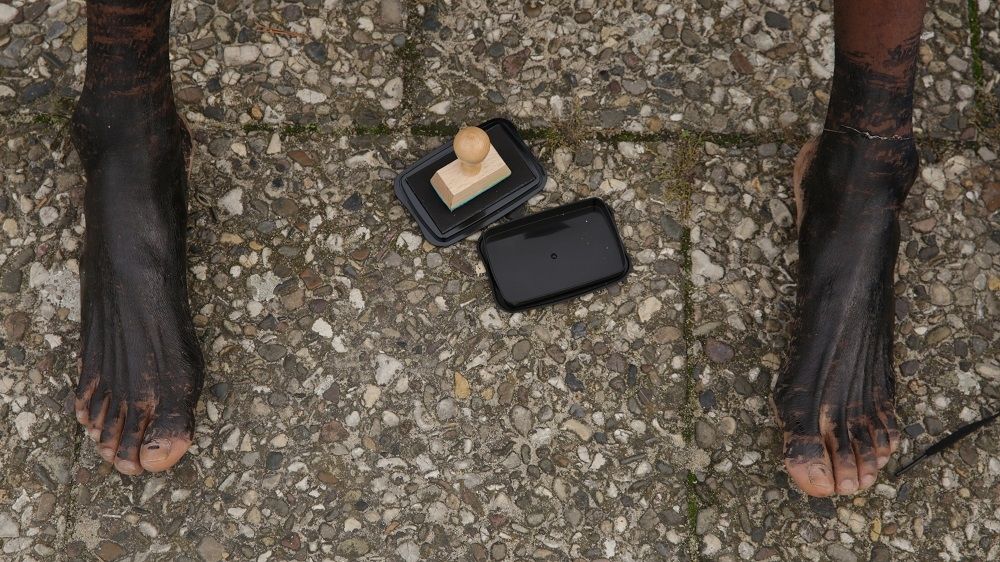
Validar, 2019-2022
Performance
The gesture of sealing throughout history has prevailed and has validated land ownership, generating laws, edicts and royal mandates. After this, in the mid-nineteenth century, the release of enslaved bodies was validated by means of a document that had to be sealed by a manumission commission that gave faith that said person was free. Finally, in 1851 total freedom – throughout the national territory of Nueva Granada – of black bodies that had been marginalized and exploited by enslavement was validated and said law would be in force as of January 1, 1852.
Nothing would be like before, that was what was supposed to happen, but these black bodies that had been kidnapped did not know for sure what their place would be. Everything would be as before, many of those who were now free, by their own choice stayed on the haciendas serving the families that had given them a place to live.
Time has passed and many surnames of dark people from time to time are cause for amazement. The meaning of mine, Lucumi, changed completely when I found out that this was the denomination given to the black people kidnapped from the coast of the Gulf of Benin in what is currently known as Nigeria. In turn, Lucumi is a language that is parallel to Yoruba, and Yoruba and Lucumi are ways of assuming a spirituality, where the deities are linked to natural elements: Obatalá, father of heaven and creator of human beings, is one of these.
A label/denomination ceased to be what it was to become a surname, but the gesture of sealing persists: a seal of passage of a person to another country, to another continent is validated or denied; a single seal on a piece of paper, can move or retain, a material good, a symbolic good, even a body. For this reason, he turns his surname into a seal with which he validates his very existence.
, Colombia